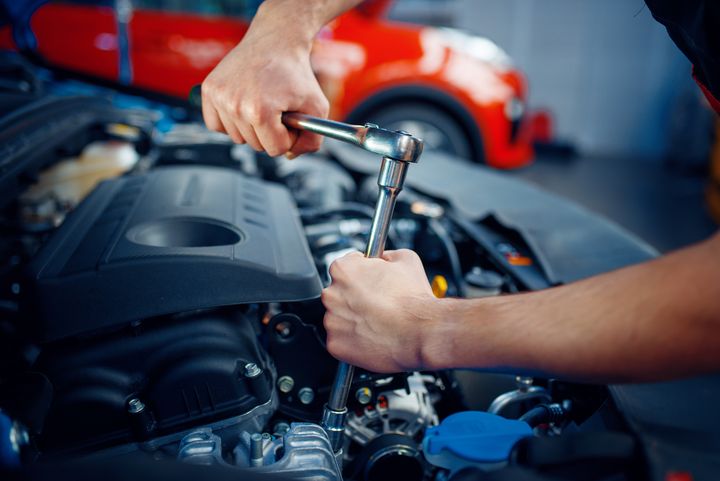Scheduled Maintenance Services
Oil Change: Regular oil changes are crucial for lubricating the engine’s moving parts and preventing excessive wear and tear. Most manufacturers recommend changing the engine oil every 5,000 to 7,500 miles, although this interval may vary depending on your driving habits and the type of oil used.
Fluid Inspections and Replacements: Fluids such as coolant, brake fluid, transmission fluid, and power steering fluid play vital roles in your vehicle’s operation. Regularly inspecting these fluids and replacing them according to the manufacturer’s recommendations helps ensure optimal performance and prevents component damage.
Filter Replacements: Air filters, fuel filters, and cabin air filters should be inspected and replaced regularly to maintain clean air intake, efficient fuel delivery, and a comfortable interior environment. Clogged filters can restrict airflow and lead to decreased performance and fuel economy.
Brake Inspection and Service: Regular brake inspections are essential for ensuring safe stopping distances and preventing brake system failures. Brake pads, rotors, calipers, and brake fluid should be inspected and serviced as needed to maintain proper braking performance.
Tire Rotation and Balancing: Rotating your tires at regular intervals helps ensure even tire wear and extends the lifespan of your tires. Balancing your tires also prevents vibration and ensures a smooth ride. Most manufacturers recommend rotating tires every 5,000 to 7,500 miles or during every other oil change.
Battery Inspection: Checking the battery’s condition, terminals, and connections is crucial for preventing unexpected breakdowns due to battery failure. Clean the battery terminals regularly and have the battery tested periodically to ensure proper voltage and charging capacity.
Inspection of Belts and Hoses: Belts (such as the serpentine belt) and hoses (such as the coolant hoses) should be inspected for signs of wear, cracking, or fraying. Replace them as needed to prevent breakdowns and avoid damage to other engine components.
Cooling System Maintenance: The cooling system should be inspected regularly for leaks, coolant level, and the condition of hoses, clamps, and the radiator. Flushing and replacing coolant at recommended intervals help prevent overheating and engine damage.
Fuel System Cleaning: Over time, fuel injectors and intake valves can become clogged with deposits, affecting engine performance and fuel efficiency. Periodic fuel system cleaning helps remove these deposits and restore optimal fuel delivery.
Transmission Service: Automatic transmissions require periodic fluid changes to maintain smooth shifting and prevent premature wear. Manual transmissions may also require fluid changes and inspections of the clutch system.
Spark Plug Replacement: Spark plugs should be inspected and replaced at regular intervals to ensure proper ignition and engine performance. Worn or fouled spark plugs can lead to misfires, rough idling, and reduced fuel efficiency.
Timing Belt Replacement: If your vehicle is equipped with a timing belt, it should be replaced according to the manufacturer’s recommended interval. A failing timing belt can cause catastrophic engine damage if it breaks while the engine is running.



